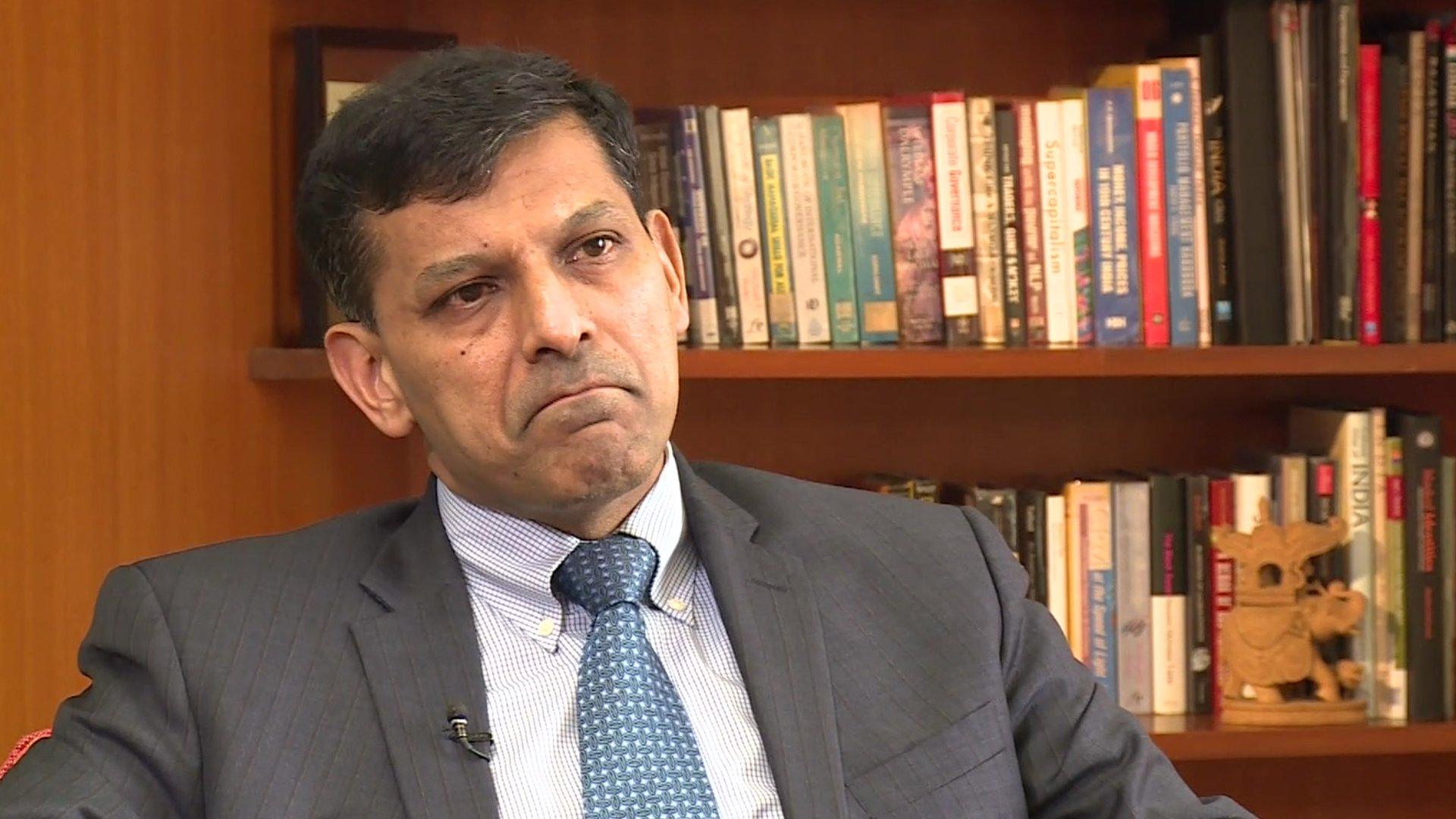'Don't overburden central banks,' says India's Rajan
- Published
Indian central bank governor, Raghuram Rajan: India 'not immune to a China-led slowdown'
Central banks are under too much pressure to fix struggling economies, according to the man in charge of India's monetary policy.
Reserve Bank of India governor Raghuram Rajan hinted that using cheap money to tackle economic problems - rather than painful reform - had to stop.
And he warned said that more intervention by central banks now risked doing "more harm than good".
Mr Rajan accurately predicted the global financial crisis in 2008.
'Consequences'
In an exclusive BBC interview in Mumbai he said: "I have been a little concerned about the immense burden for action that is falling on central banks and I think it is quite legitimate for central banks to say at some point we can't carry the burden ourselves in fact we may not have the tools to do everything that is asked of us."
"Don't keep asking us to do more because at some point we get into territory where the consequences may be more bad than good if we actually act."
Mr Rajan acknowledged that his situation was not typical in the current climate, because unlike most global economies, India still has high inflation - running at close to 6%. Interest rates are also high - at 7.25% despite having been cut three times this year to try and stimulate growth.
"In my country I'm faced with traditional central bank problems like inflation so we still have a handle to work with those," Mr Rajan said.
'Tools'
He added: "But in some other countries you are faced with problems which are maybe way beyond what the central bank is capable of addressing such as demographic change, deep changes in productivity - and those are probably best dealt with other tools.
"But if the other tools aren't being used or there's a sense they'll take too long to work and you're working with the central bank only as the primary engine you may end up in situations that actually create more harm than good.
"Once interest rates are at zero it's hard to crank up new tools. Central banks have tried, they've tried very hard - negative interest rates, low for long, quantitative easing, we've done a whole bunch of things like that. The question is - at what point do you, through additional measures, do more harm than good?"
- Published25 August 2015

- Published25 August 2015